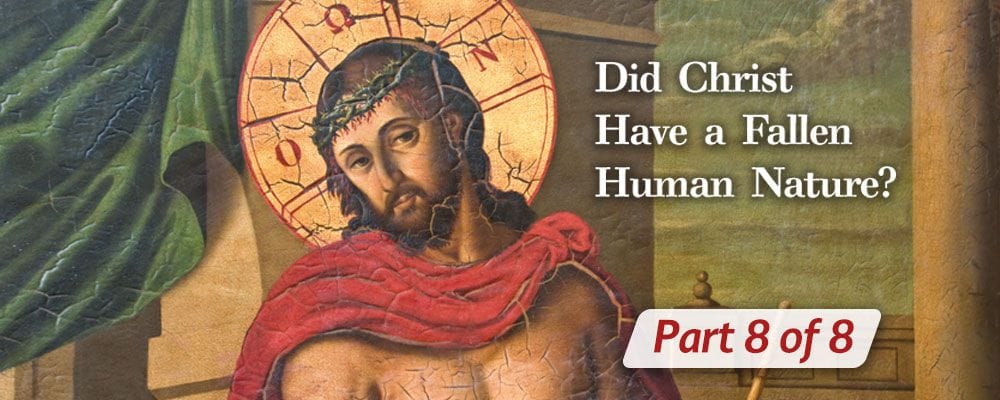
Did Christ have a fallen human nature? – Part 8 of 8
Did Christ assume a pre-fallen or a post-fallen humanity?
Our blogger states that to claim that Jesus assumed a pre-fallen humanity means that He did not actually become like us in every way (Heb 2:17). According to his analysis this would mean that God did not actually create humans, “like us in every way,” but some super-duper creatures that became human only after they sinned. Likewise it would also mean that after the general resurrection people will cease to be humans, because in that blessed state “they cannot die any more, because they are equal to angels and are sons of God, being sons of the resurrection” (Lk. 20:36). Postapsarianists ask: How can we have a High Priest who is able to share in our weaknesses if He didn’t actually assume (take on) our weaknesses? We retort, how could He save us if He were in the same predicament as we all are? But how then could Jesus redeem our fallen humanity by assuming a pre-fallen humanity? Because He did not come to redeem the sins of our humanity; He came to redeem our nous, our mind, and our heart that give rise to sin. But according to the Fathers, “What is not assumed is not redeemed.” This is the most abused patristic dictum. Let’s see it in its context. St. Gregory the Theologian used this much misunderstood phrase to prove that the teaching of Apollinaris, namely that Christ assumed only human flesh without the nous, was heretical, because the divine Logos assumed not merely human flesh, but human flesh together with the human nous, the entire anthropos. In his words,
That which He has not assumed He has not healed, but that which He has truly united with God is saved. If only a part of Adam fell, then that part that is assumed is saved, but if all of Adam fell, then he is completely saved only by complete union with Him who has been born man in completeness.
It is obvious that the divine Logos did not come to unite our sinful mind with God, but to cleanse and purify the mind, in which every thought is generated. St. Gregory of Nyssa expresses a similar thought to that of the Theologian:
The Lord … was made in the likeness of man, and shared our nature, becoming like us in all things, yet without sin. He was like us in all things, in that He took upon Him manhood in its entirety with soul and body, so that our salvation was accomplished by means of both.
What the divine Logos assumed is not sin or sinful flesh. Sin did not fall; Adam did. Christ did not come to save sin, but to save us from sin; He did not come to heal our evil tendencies, but to heal our nous that gives rise to them. Far from advocating that the divine Logos assumed our fallen nature, St. Gregory the Theologian states clearly and unequivocally that the humanity assumed by Him was one rendered incapable of falling into sin and with a human will that could not be opposed to God, because it was rendered homotheos, “wholly one with God.” Postlapsarianists are not allowed to distort the phrase of this great Father for their own agenda, which runs contrary to the inspired teaching of this Father, a teaching the Church has made Her own.
